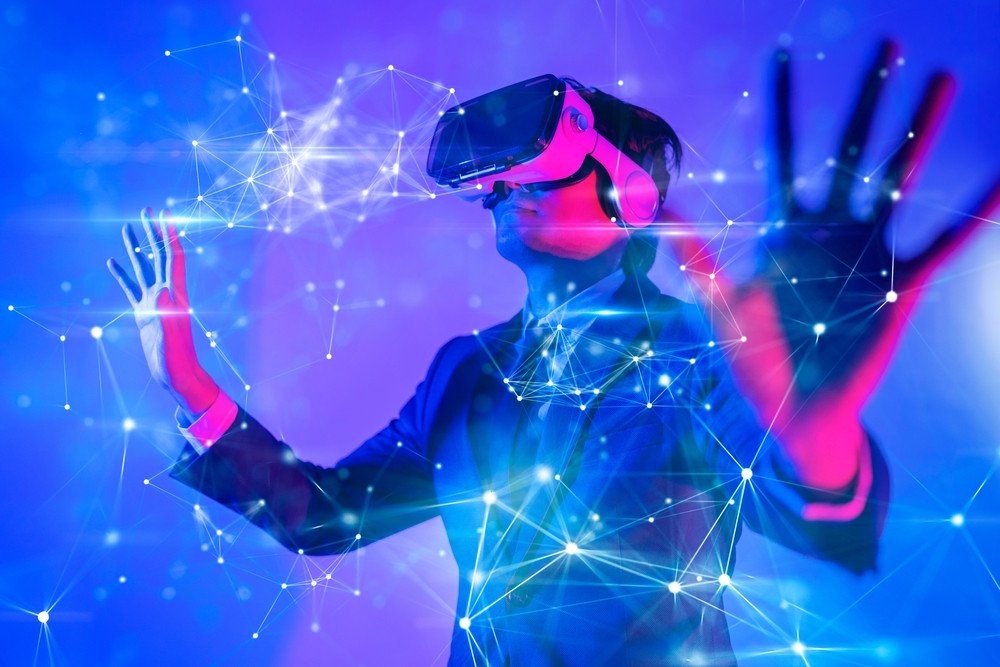
Introduction: The Evolution of Event Marketing
Event marketing has always been a powerful tool for businesses to connect with their audience, build relationships, and showcase their products or services. However, with the rise of technology and the recent global shift towards virtual experiences, the landscape of event marketing is undergoing a significant transformation. In this blog post, we will explore the future of event marketing, focusing on the exciting possibilities offered by virtual reality (VR) and hybrid events.
The Rise of Virtual Reality (VR) Events
What is Virtual Reality (VR)?
Virtual Reality (VR) is an immersive technology that creates a simulated environment, allowing users to interact with a computer-generated world. It typically involves wearing a VR headset and using handheld controllers to navigate and engage with the virtual environment.
Benefits of VR Events
- Immersive Experiences: VR events offer a level of immersion and interactivity that traditional events cannot match. Attendees can explore virtual spaces, interact with 3D objects, and engage in realistic simulations.
- Global Reach: VR events eliminate geographical barriers, allowing attendees from around the world to participate without the need for travel.
- Cost-Effectiveness: Hosting a VR event can be more cost-effective than organizing a physical event, as it eliminates expenses related to venue rental, logistics, and travel.
Types of VR Events
- Virtual Conferences and Trade Shows: Companies can host virtual conferences and trade shows, where attendees can explore virtual booths, attend presentations, and network with other participants.
- Product Launches and Demonstrations: VR provides an immersive platform for showcasing products and allowing potential customers to experience them virtually.
- Training and Workshops: VR can be used for interactive training sessions and workshops, offering a realistic and engaging learning environment.
The Emergence of Hybrid Events
What are Hybrid Events?
Hybrid events combine elements of both physical and virtual experiences. They allow for in-person attendance while also providing a virtual component for remote participants.
Benefits of Hybrid Events
- Expanded Reach: Hybrid events enable businesses to reach a wider audience by accommodating both in-person and virtual attendees.
- Flexibility and Adaptability: Hybrid events offer flexibility, allowing attendees to choose their preferred mode of participation, whether it's attending in person or joining virtually.
- Enhanced Engagement: Hybrid events can leverage technology to enhance attendee engagement, such as live streaming, interactive Q&A sessions, and virtual networking opportunities.
Examples of Hybrid Events
- Conferences and Summits: Hybrid conferences bring together both physical and virtual attendees, offering a mix of live presentations, panel discussions, and virtual sessions.
- Product Launches and Exhibitions: Companies can organize hybrid product launches, combining physical product showcases with live streaming and virtual demonstrations.
- Workshops and Training Programs: Hybrid workshops allow participants to attend in person or join remotely, providing a flexible learning experience.
The Future of Event Marketing: VR and Hybrid Events
Immersive Experiences and Personalization
The future of event marketing lies in creating immersive experiences that captivate attendees and provide personalized interactions. VR events offer the potential for highly engaging and customizable experiences, allowing attendees to explore virtual environments tailored to their interests.
Data-Driven Insights and Analytics
Virtual and hybrid events generate valuable data that can be leveraged to gain insights into attendee behavior, preferences, and engagement. This data can inform future marketing strategies and help optimize event experiences.
Sustainability and Environmental Impact
Virtual and hybrid events have the potential to significantly reduce the environmental impact associated with traditional physical events. By minimizing travel and reducing resource consumption, businesses can contribute to a more sustainable future.
Conclusion: Embracing the Future of Event Marketing
As technology continues to advance, the future of event marketing is undoubtedly moving towards virtual reality and hybrid events. These innovative approaches offer exciting opportunities for businesses to create immersive experiences, expand their reach, and engage with their audience in new and meaningful ways. By embracing the possibilities of VR and hybrid events, businesses can stay ahead of the curve and deliver unforgettable experiences that leave a lasting impact.
Ready to explore the future of event marketing through virtual reality and hybrid events? Contact us at ULEGENDARY DIGITAL, and let's help you create immersive and impactful experiences that elevate your brand.





